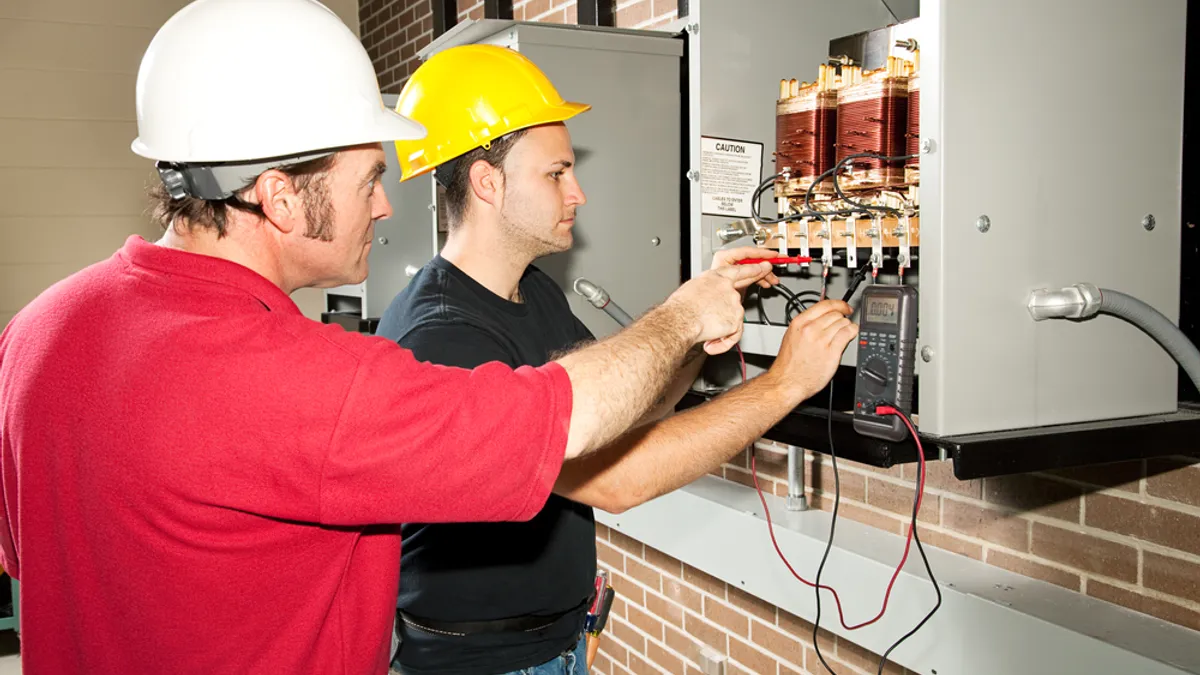Dive Brief:
- In a speech, President Donald Trump expressed a desire to return to the days of vocational schools — both in name and function — saying he doesn't know what a community college is, other than knowing it's a two-year school.
- Touting the need for expanded financial aid to support "short-term training programs that equip Americans to succeed in construction and the skilled trades" during remarks on his infrastructure plan, the president said he knows what vocational "and technical perhaps" mean, but suggested the term "community college" is too nebulous.
- He again lauded the importance of apprenticeship programs as the key to workforce development, equating them more closely with technical and vocational training.
Dive Insight:
The Atlantic's writer Alia Wong unpacked the problematic nature of the president's remarks in a piece published on the site. Most prominently, she pointed out the important role of community colleges in advancing the number of degreed individuals overall, as many Americans continue to enroll in community colleges on their way to bachelor's degrees, making for a more affordable, accessible experience for many. The institutions enroll more than 40% of the nation's total undergraduate population, and low costs and few barriers to entry make them a popular pathway to the middle class for low-income students.
This de-emphasis of the importance of a four-year degree, and the associate's degree as a pathway to a bachelor's, in favor of apprenticeships and vocational training is consistent with the message the president — and Republicans overall — continue to tout, as doubts loom about the relevance of a four-year degree. And in Ohio, where only just over one in four people has a bachelor's degree and residents are still feeling the effects of the Great Recession and a shift away from mining and manufacturing, targeting a fast pathway to jobs, rather than to a degree that may saddle one with debt but no employment guarantee, certainly plays to regional sentiments.
Richfield, Ohio where the president was speaking, however — a town between Akron and Cleveland — has median household income that outpaces national and regional averages. Nevertheless, the average has declined recently as the national and regional averages have increased, a more educated population than the state as a whole, and finance and insurance are nearly as likely to employ residents as manufacturing.
Still, just like the attacks on higher education as an industry, the onus is on the institutions and the organizations that represent them to control the narrative and the industry's benefits to the local and national economy. Leaders need to frame their institutions' survival as a public, not private, benefit in a climate that is almost resentful of the idea of publicly supporting personal gain.
The American Association of Community Colleges put out a statement addressing the president's comments, acknowledging that while community colleges were the country's first vocational schools, their scope and reach has expanded that original aim. (It is also worth noting that many of the nation's four-year institutions were founded somewhat as vocational schools, to train teachers, ministers and agriculturalists.)
In the statement, AACC President Walter Bumphus fought against a regression toward labeling all two-year institutions vocational or technical schools, as President Trump suggested, while zeroing in on the "community" aspect of the name in a way that showcases that community colleges are set-up to do the very thing higher ed as a whole is being criticized for not doing: "evolve in support of its community."
The institutions "offer sophisticated, relevant and accredited workforce education" as well as "provide a critical pathway for students to reach their educational goals" — whatever that local community needs, its community colleges can provide, Bumphus said.










